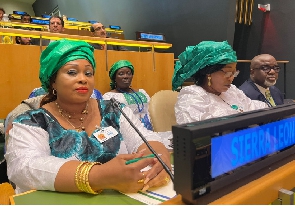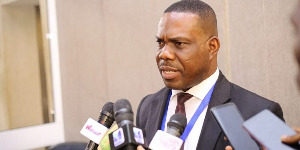More wins for Sierra Leonean women, following the passing of the Gender Equality and Women’s Empowerment 2020 bill, granting women equal rights as men to own, lease, or buy land in the West African country.
The new law, which ended a six-decade struggle for the disparity in women’s rights, is a welcome development for women in Sierra Leone.
President, Julius Maada Bio, enacted the Gender Equality and Women’s Empowerment 2020 bill into law on January 19, which will be enforced alongside the Customary Land Rights Act 2022.
Aside from the land ownership rights, the new law accorded more rights to women in other areas of national importance, including eligibility to be appointed paramount chiefs, 30% constituency seat in each district, 30% ward seat in each locality, 30% minimum in appointive positions in public office at each level or category of governance, 30% minimum of all employees in a public/private organization, 30% minimum in decision-making level within any organization, and equal pay with other employees of the same qualification, experience, grade, job description, and work value.
The Gender Equality and Women’s Empowerment Law explicitly prescribes that a “person who discriminates in providing access to financial services or resources, based on gender or any other grounds commits an offense and is liable on conviction to a fine of not less than 50,000,000.00 Leones or to imprisonment for a term not less than financial services or resources, based on gender or any other grounds 5 years or to both such fine and imprisonment.”
“Where a political party fails to comply with subsection (1) – 30% constituency seat in each district, the Electoral Commission shall reject the party’s list of candidates.”
About 70% of Sierra Leoneans live in rural areas, and women comprise 52% of the country’s population.
A large majority of rural dwellers depend on agriculture for their livelihoods. As such, land ownership, tenure, and inheritance rights have remained crucial issues in almost every rural household.
These issues are bound up in a system of customary law that has empowered endemic gender discrimination.
One of the most critical problems facing women and girls, for example, is the dispossession of their land in the death of a husband, where the customary marriage wasn’t formally registered. This problem attracted the attention of many international governments and non-governmental bodies.
Before the enactment of the Law, 83% of the land properties belonged to family units, and customs required that the eldest male in a family should hold the land in trust or with a paramount chief being the custodian of the communal lands.
This practice prevailed for a long time, as 95% of the country’s land is governed by Customary Law, which takes jurisdiction where there is no Statutory Law, making it extremely difficult for women to own land.
However, through years of advocacy from women groups, the Ministry of Gender, the Office of the First Lady, and UN Women, the law bill was initiated in 2021, with subsequent modifications in months leading to the enactment on January 19.
Maryam Kaika, a fashion designer in Freetown, told Quartz that men constitute the major challenge to women’s right to land ownership. “They will do everything to try to repossess the land,” she said.
Lauding the President’s commitment to gender inclusivity, Sally Adams, the President of Women’s Forum Sierra Leone, said, “Women will now be part of the land committees in their communities.”
Sierra Leone Gender Minister, Manty Tarawall, said that men’s attitudes and mindsets are gradually changing in recent years, paving the way for more dialogue on gender issues.
“We have crossed the massive hurdles. The conversation has changed organically from rights-based to economic growth. Those that were opposed are now willing. We expect less challenges in implementation,” says Tarawalli. “A change in mindset will not happen immediately, but slowly we’re getting there.”
Africa News of Wednesday, 5 July 2023
Source: face2faceafrica.com













